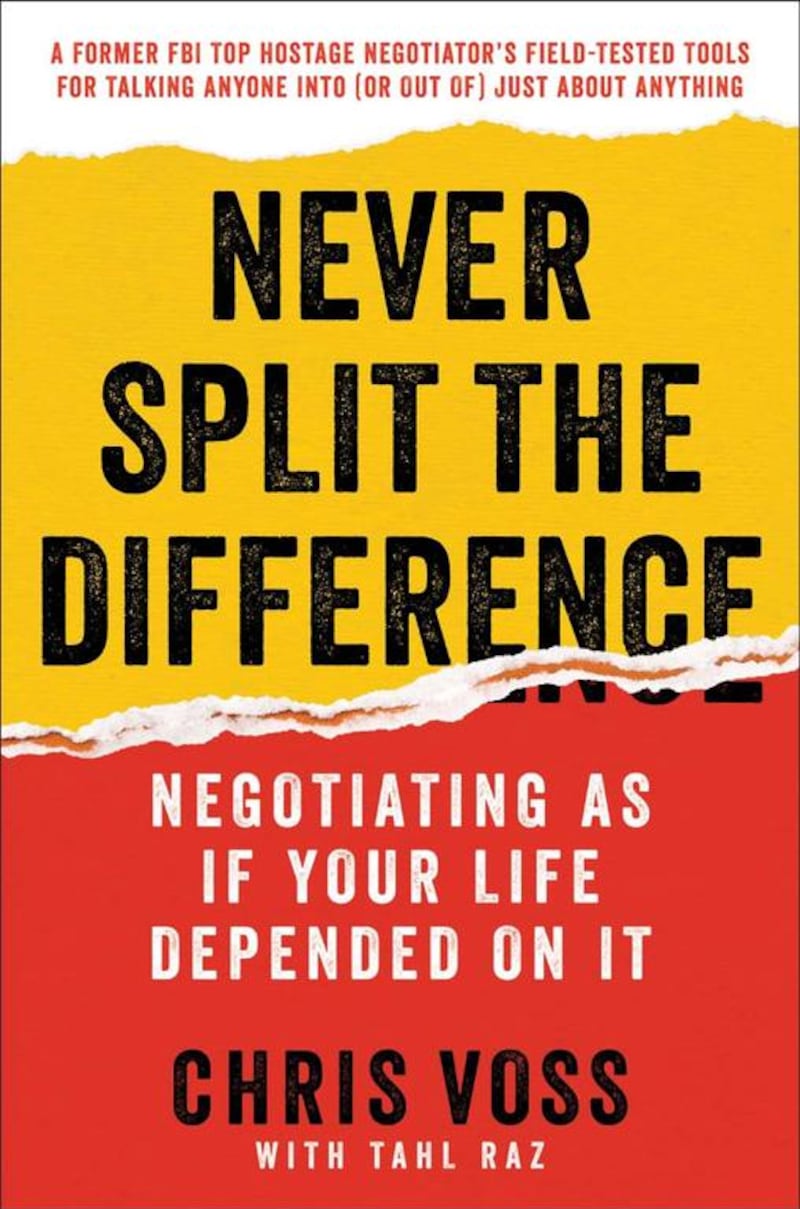Years ago I went on a negotiation course with a bunch of salespeople. I learnt a handful of key tricks that work for me to this day.
You could pull together a similar toolkit a lot more cheaply by reading Chris Voss's book on negotiation, Never Split The Difference. The security consultant worked as the FBI's lead hostage negotiator for 15 years so, as he says, his negotiation tips are based on real-life examples – because if his tools didn't work, "someone died".
Voss taught students at the Harvard Negotiating Project, the university’s classes on the topic, and says classroom learning is generally based on rational logic and separating the person, and emotion, from the problem.
But, he says, there’s a problem in that humans are not generally rational. “We are always an animal,” he says, and we act first and foremost from our “deeply held but mostly invisible and inchoate fears, needs, perceptions and desires”.
This is why the FBI learnt how to deal in psychological skills, Voss says, to calm people down and establish rapport, rather than learn “quid pro quo” bargaining. In hostage negotiations, you need to get everything you ask for “without giving anything back of substance”.
His key tips for business deals are to use active listening, then “mirror” or repeat the three to five critical words of what your counterpart has just said to show you’ve heard, which encourages them to elaborate and build the connection further.
You always have to be prepared to walk away, Voss stresses, “never be needy for a deal”. And don’t show anger but, rather, “strategic umbrage”, using a line like, “I don’t see how that would ever work”.
Voss says “tactical empathy” is the key to his technique, and he provides a step-by-step guide to negotiating hard in one chapter, as well as how to deal with the “black swan” outlier events for which his consultancy is named.
The appendix of tactics and strategies is a helpful reminder but no use without reading the book through first – don’t think you can just flip to the end.
And those key tricks I learnt? I’ll never tell …
Never Split The Difference: Negotiating as if your life depended on it, by Chris Voss, is published by HarperBusiness and available from Amazon.com for US$17.25.
q&a how to best pitch yourself
Suzanne Locke expands on the best ways to negotiate in business based on Chris Voss's Never Split The Difference:
What about my tone of voice?
Voss says there are three tones you should use. There’s the “late-night FM DJ” voice, which means talking slowly and clearly, with a downward inflection, which says you’re in control. Then there’s the positive/playful. The effect is cross-cultural and never lost in translation. Then the direct or assertive tone, but it signals dominance and should be used only rarely.
Should you ask open-ended questions?
Well, Voss says “no” is normally the trigger to start negotiations. He does say you should ask calibrated questions that begin with how? or what?, to make the other party pause and think about how to solve your problem. The best one he offers is: “How am I supposed to do that?”
Is there a formula to money negotiations?
The FBI uses the Ackerman model, says Voss – set your target price in your head, set your first offer at 65 per cent then three further raises of 85 per cent, 95 per cent and 100 per cent of what you want to achieve. And he says you should use a precise, non-rounded number, like $1,829 if you’re aiming for $1,830, to give the figure “credibility”.
What other books are there about negotiation?
Getting to Yes, by Harvard Negotiation Project's Roger Fisher and William Ury, is the most famous and referenced frequently by Voss.
business@ thenational.ae
Follow The National's Business section on Twitter





